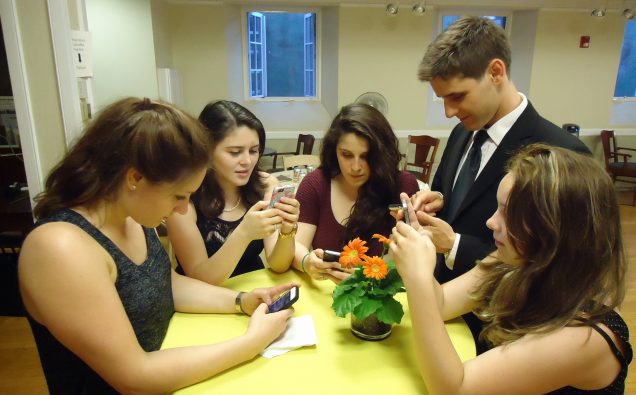
Young people using smart phones, Photo: Tomwsulcer/Wikimedia Commons
You thought teens would all be singing praises of the social media?
Think again!
True, they are the most connected generation. But American teens are also conscious of both the positive and negative effects of the social media platforms.
Interestingly, 45% of teens believe social media has a neither positive nor negative effect on people their age.
A latest Pew Research Center survey finds that three-in-ten teens (31%) see social media having a mostly positive impact, while 24% see it having a mostly negative impact.
According to Pew, Facebook is no more the dominant platform for teens. While 51% say they use Facebook, YouTube, Instagram and Snapchat have attracted sizable majorities.
The users see the social media from a variety of different dimensions. Among those who say social media has had a mostly positive effect 40% respondents cite its ability to let them keep in touch and interact with others.
Many teens underscore how social media has made it easier to communicate with family and friends and to connect with new people, Pew reported on its website.
Another group of teens see the social media utility in enabling greater access to news and information (16%) while others say the platforms help them connect with people who share similar interests (15%):
Other findings say 9% of teens surveyed see social media is a good venue for entertainmentv7% say it offers a space for self-expression 5% say the platforms allow teens to get support from others.
Among those who find social media having more negative effects, 27% the platform have led to more bullying and the overall spread of rumors.
The survey also found that 17% of the respondents feel these platforms “harm relationships and result in less meaningful human interactions. Similar shares think social media distorts reality and gives teens an unrealistic view of other people’s lives (15%), or that teens spend too much time on social media (14%).”
“Another 12% criticize social media for influencing teens to give in to peer pressure, while smaller shares express concerns that these sites could lead to psychological issues or drama,” Pew Center reports on its website.











